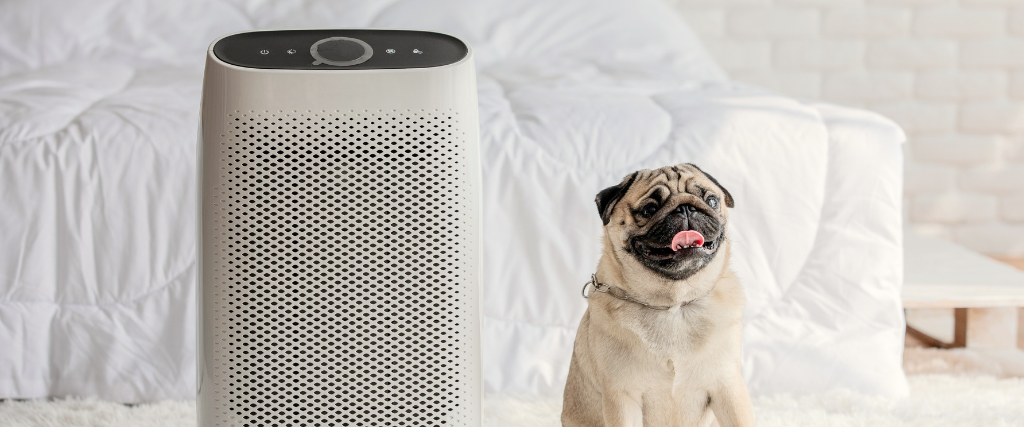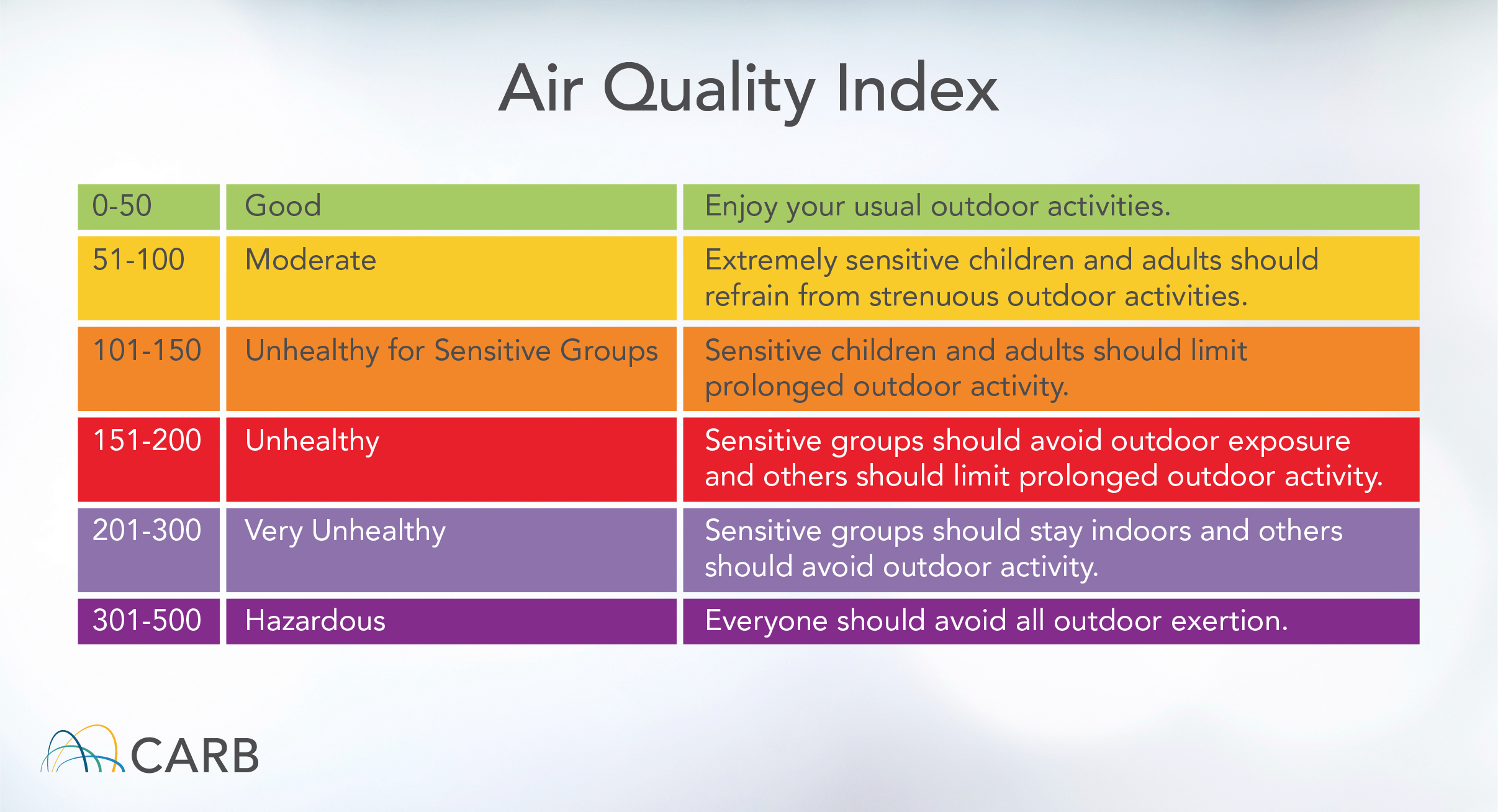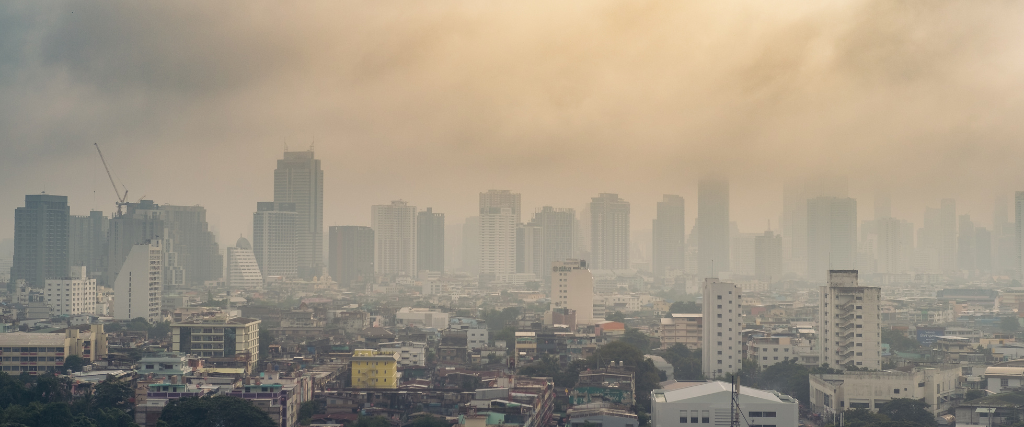
The past few years have seen an alarming increase in the frequency and intensity of wildfires, notably in areas such as the Western United States, Australia, and parts of Europe. While the devastating effects of these fires on human life and the environment are widely discussed, an often-underestimated issue is the impact they have on our beloved pets and their health.
The good news is that many of the precautions we take for ourselves will also apply to our pets!
How does smoke impact our pets?
Our pets are especially vulnerable to poor air quality caused by wildfires. They typically have faster respiratory rates than humans, and some species, like dogs and cats, have a keen sense of smell, which means they can potentially inhale more particles.
The Air Quality Index (AQI) is the Environmental Protection Agency's index for reporting air quality. An AQI of 101-150 can be unhealthy for sensitive groups, such as puppies, senior dogs, or adult dogs with breathing/heart issues. Pets in this group should be kept inside air-conditioned homes with short outdoor visits to relieve themselves.
Once an AQI is above 151, this is considered unhealthy for everyone.

What types of pets are at greater risk?
While all pets can be affected by poor air quality from smoke, some are more at risk than others.
Here are a few categories of pets that are particularly vulnerable:
- Pets with Pre-existing Conditions: Just like humans, pets with pre-existing respiratory conditions like asthma or bronchitis are more likely to be affected by poor air quality. The same goes for pets with heart disease. For these animals, exposure to smoke can exacerbate their conditions and lead to severe health problems.
- SeniorPets: Older pets are more susceptible to poor air quality. As pets age, their bodies are less capable of dealing with the effects of pollutants. This means that an older pet may suffer more from exposure to smoke and may take longer to recover.
- Brachycephalic Breeds: Breeds with short noses and flat faces, known as brachycephalic breeds, can struggle more with poor air quality. Dogs like Bulldogs, Pugs, and Shih Tzus, and cats like Persians and Exotic Shorthairs, have shorter airways and can have difficulty breathing during normal circumstances, let alone when the air is filled with smoke.
- Birds: Birds have highly efficient respiratory systems, which unfortunately means they are especially sensitive to inhaled particles and toxins. Smoke and poor air quality can lead to severe respiratory distress in birds, making them highly at risk.
- Small Mammals: Small mammals such as rabbits, guinea pigs, and rodents have faster respiratory rates, which can increase their intake of harmful particles when air quality is poor.
Regardless of your pet's breed, age, or health status, monitoring them closely during periods of poor air quality and limiting their exposure as much as possible is essential. If you notice any changes in your pet's behavior or health, contact your veterinarian immediately.
How will your pet show signs of distress from smoke?
Signs of potential health issues in pets due to poor air quality can include:
- Increased or chronic coughing
- Increased respiratory rate/panting
- Increased sneezing
- Watery or inflamed eyes
It is important to remember that pets with pre-existing respiratory conditions and heart diseases can experience exacerbated symptoms.
While more severe symptoms are rare, they can be especially disturbing. Symptoms like this could show if your pet has had prolonged exposure or is in close proximity to a fire.
- Disorientation or confusion
- Fainting
- Seizures
- Difficulty breathing
- Weakness or lethargy
- Uncoordinated walking/inability to stand/collapse
- Pale or bluish gums
- Excessive salivation
- Prolonged open-mouthed breathing
- Swelling of the mouth or upper airway
- Vomiting or loss of appetite
If your pet experiences any of the above symptoms, especially breathing problems, call your veterinarian or an emergency veterinarian immediately.

How can you protect your pets from smoke?
Keep pets indoors: The easiest and most effective way to protect pets from the ill effects of smoke is to keep them indoors with windows and doors closed. Utilize air conditioning, air purifiers, or both to help filter out particles.
Limit outdoor activity: Avoid long walks or strenuous exercise during smoky conditions. Even brief exposure can cause respiratory distress or harm.
Mind the signs: Pay close attention to any changes in your pet's behavior or health. If your pet is coughing, wheezing, has a hard time breathing, or seems excessively tired, contact your veterinarian immediately.
Avoid masks: Unless your veterinarian recommends a mask for your pet, it is wise to avoid using one. Masks can present a risk to your pet, such as restricted breathing or increased anxiety.
Stay informed: Regularly check local air quality reports and heed all advice and alerts from local health and safety officials. Apps and websites like the Environmental Protection Agency's (EPA) AirNow can provide up-to-date information on your local air quality.
The love and companionship we receive from our pets are immeasurable. In return, we must offer them the best care and protection from these environmental threats. By staying informed, alert, and ready, we can ensure that our pets live as comfortably as possible, even in these challenging times.
Contact your veterinarian to see if your pets symptoms warrant a visit. Or schedule an appointment with us today!
Attribution Link:

